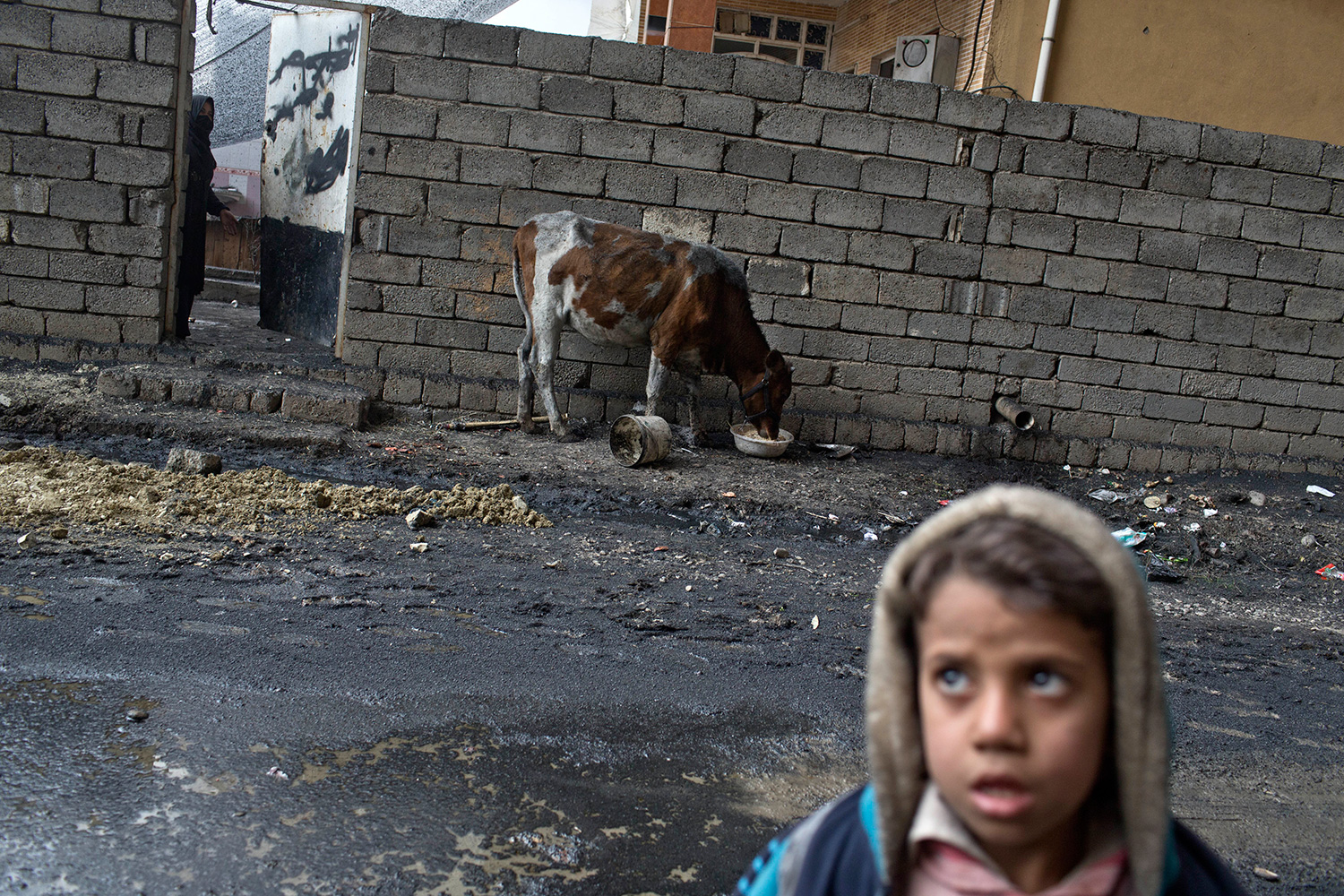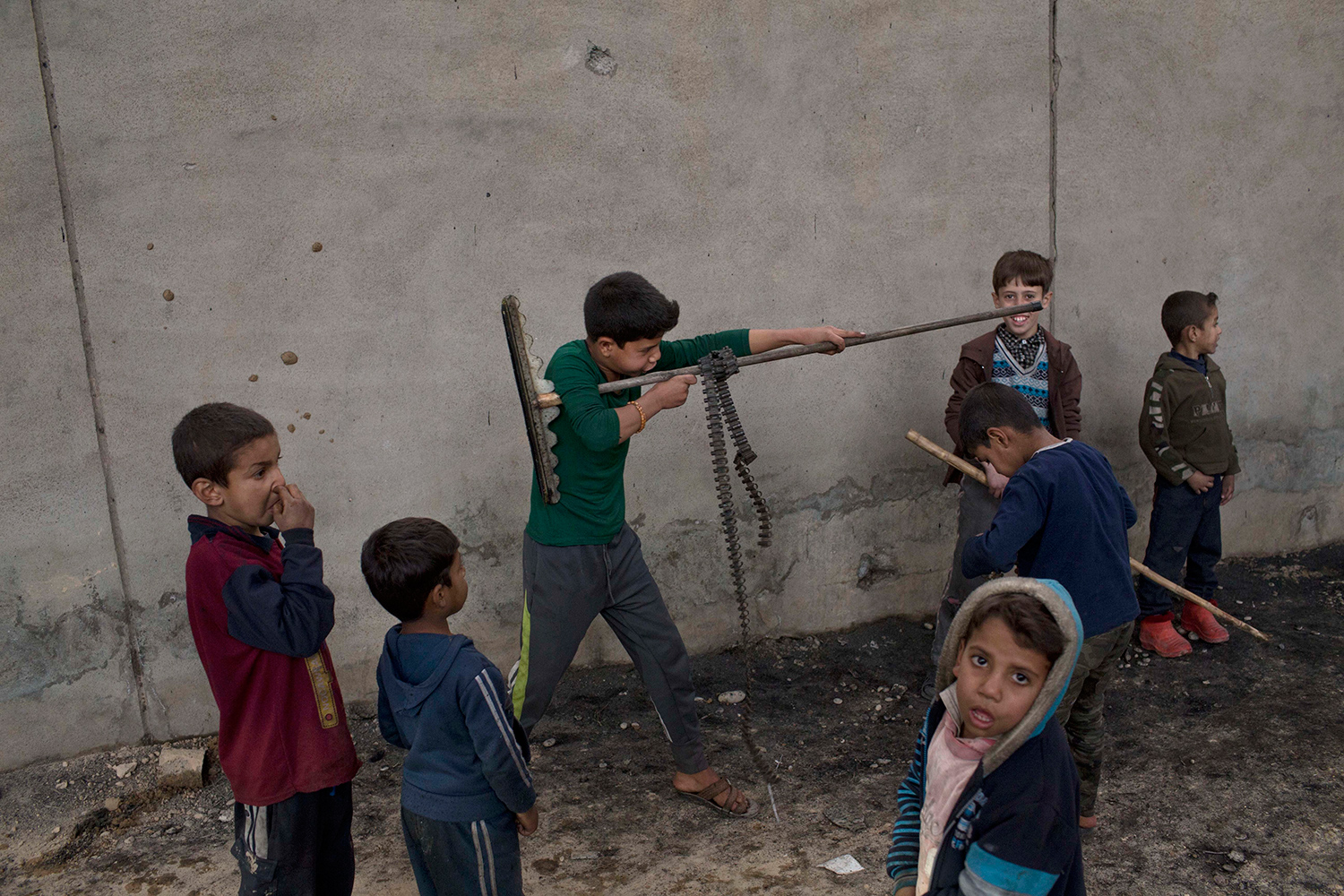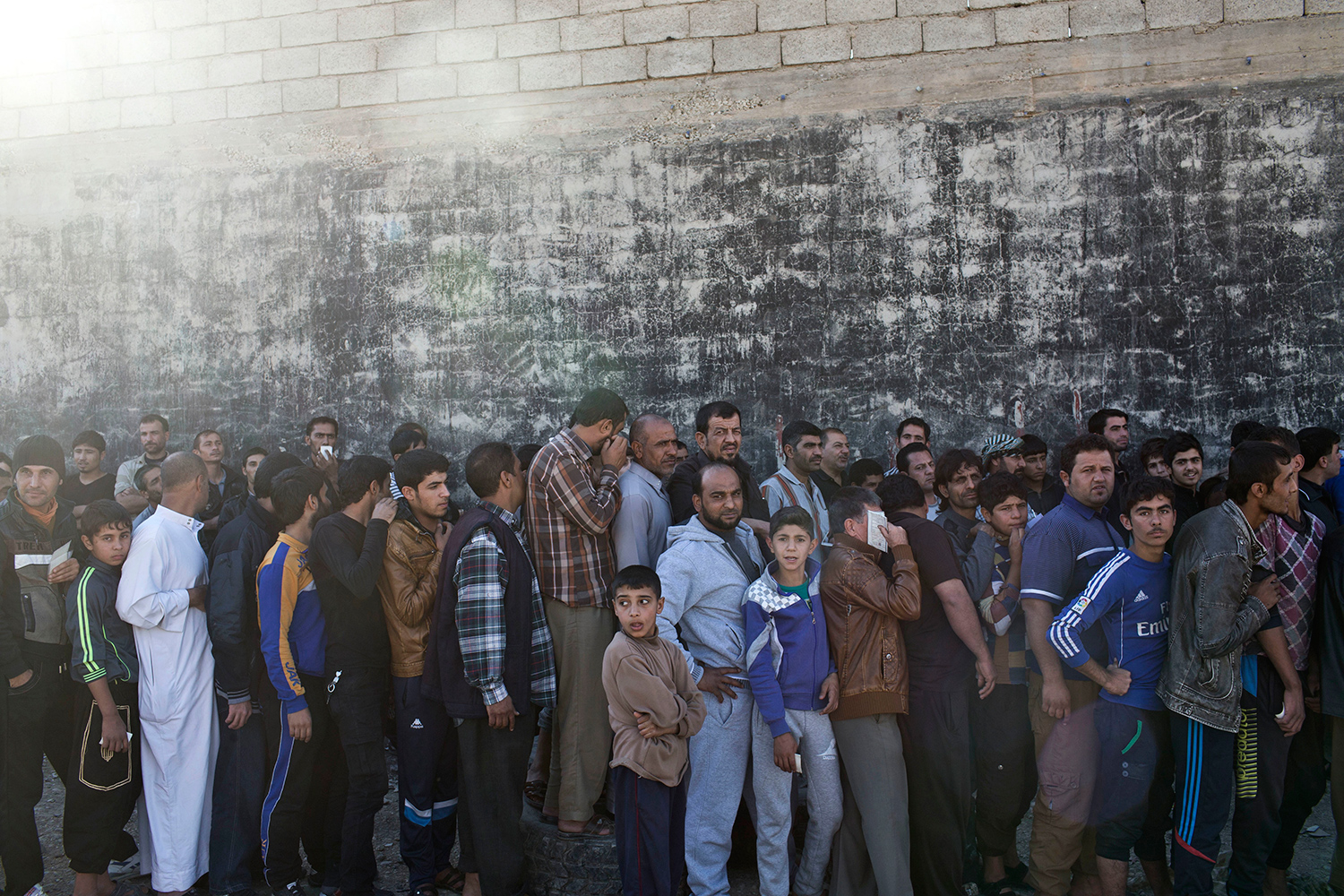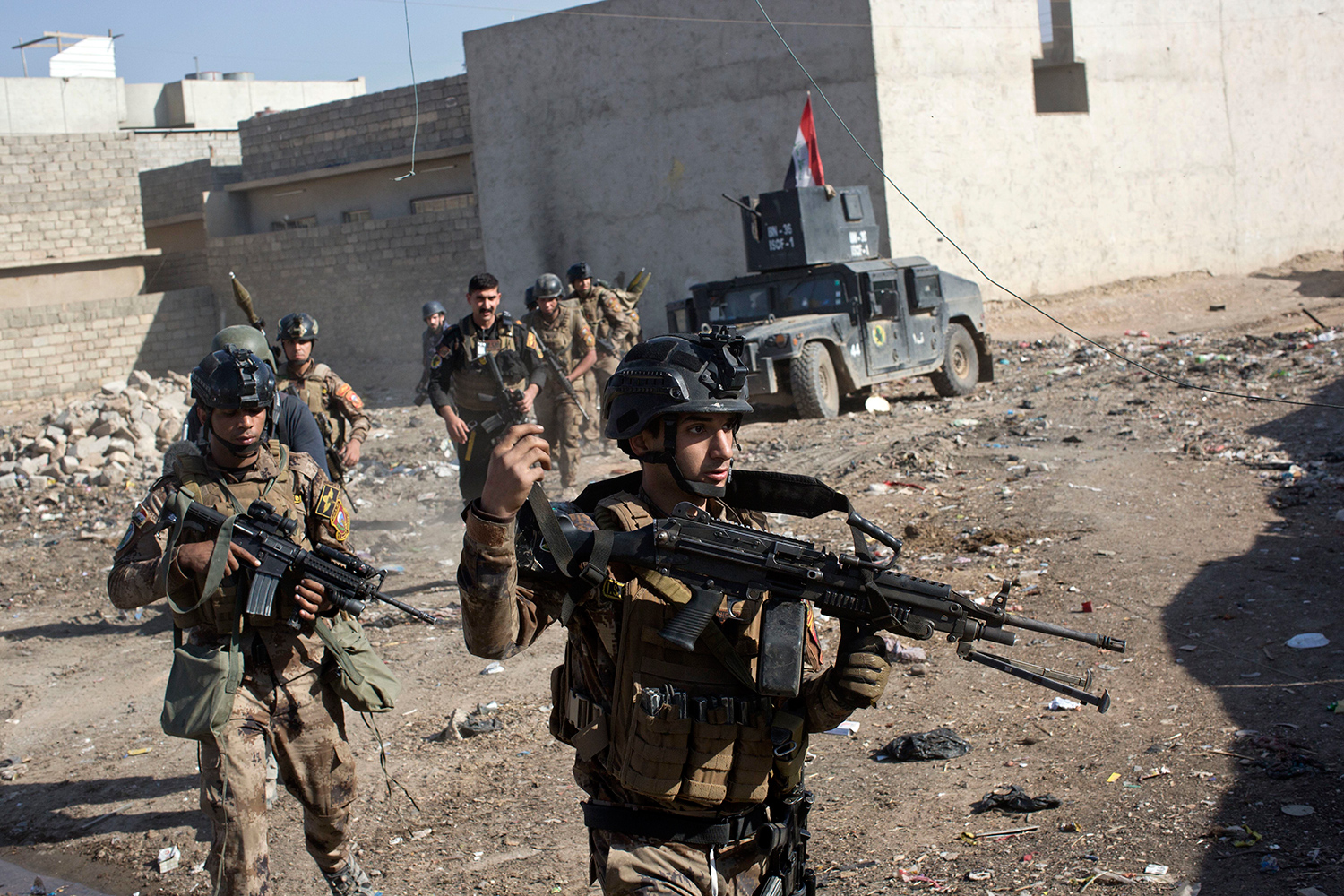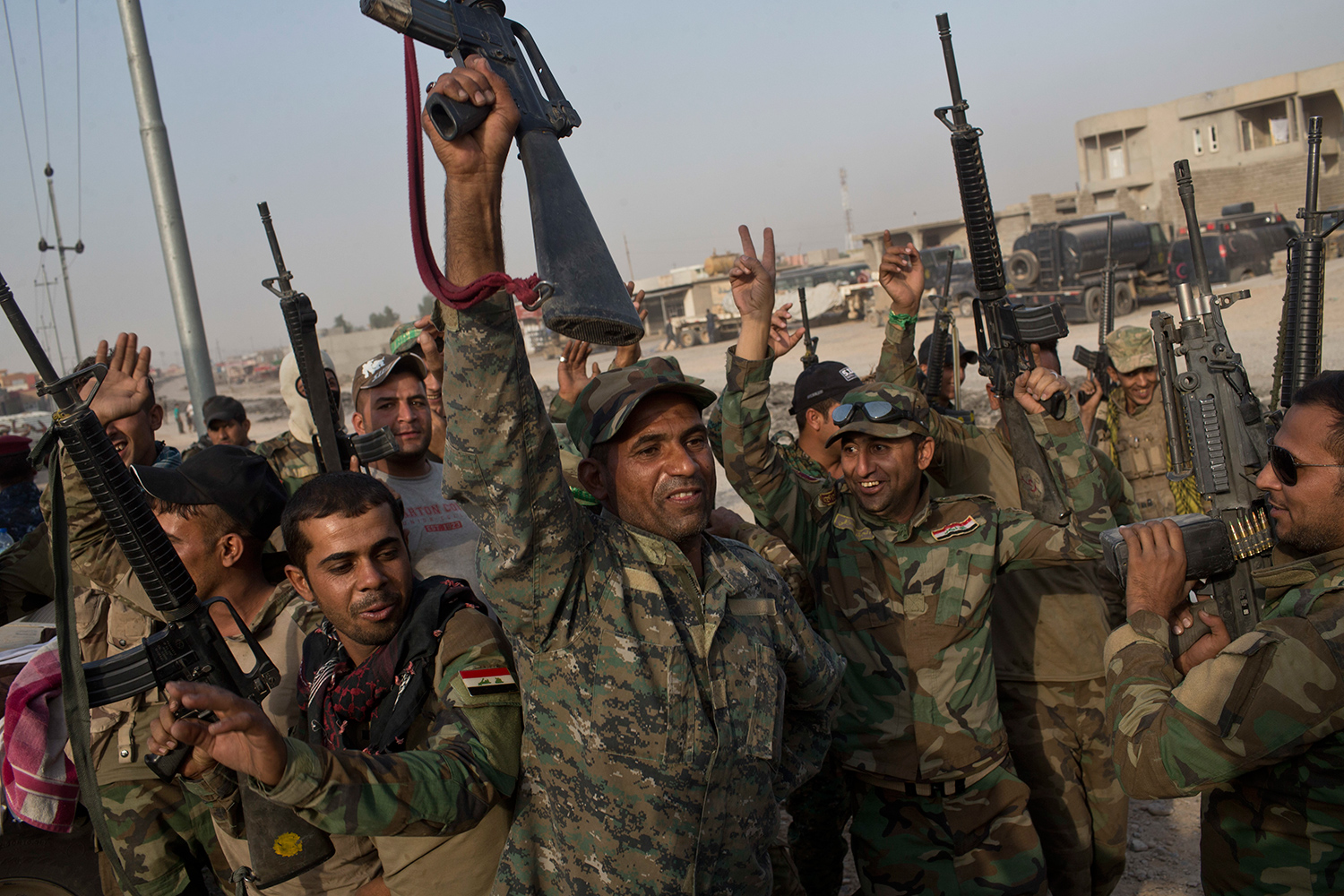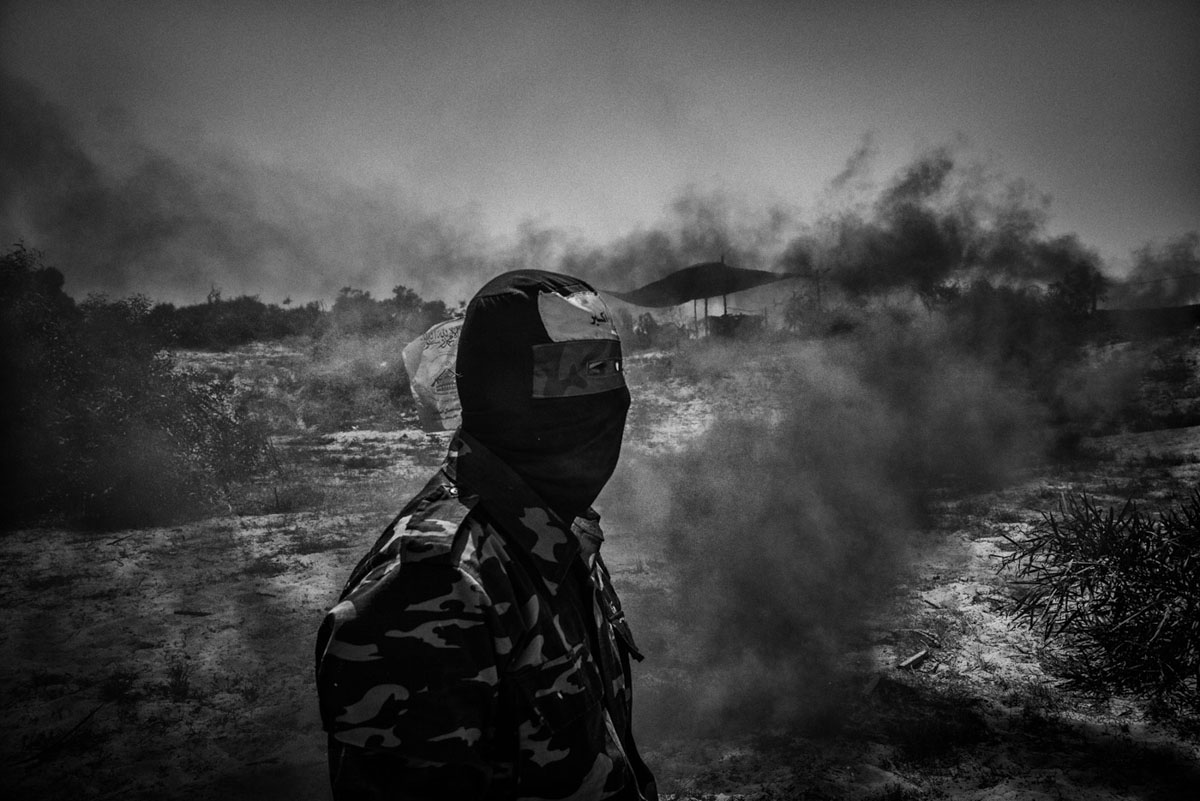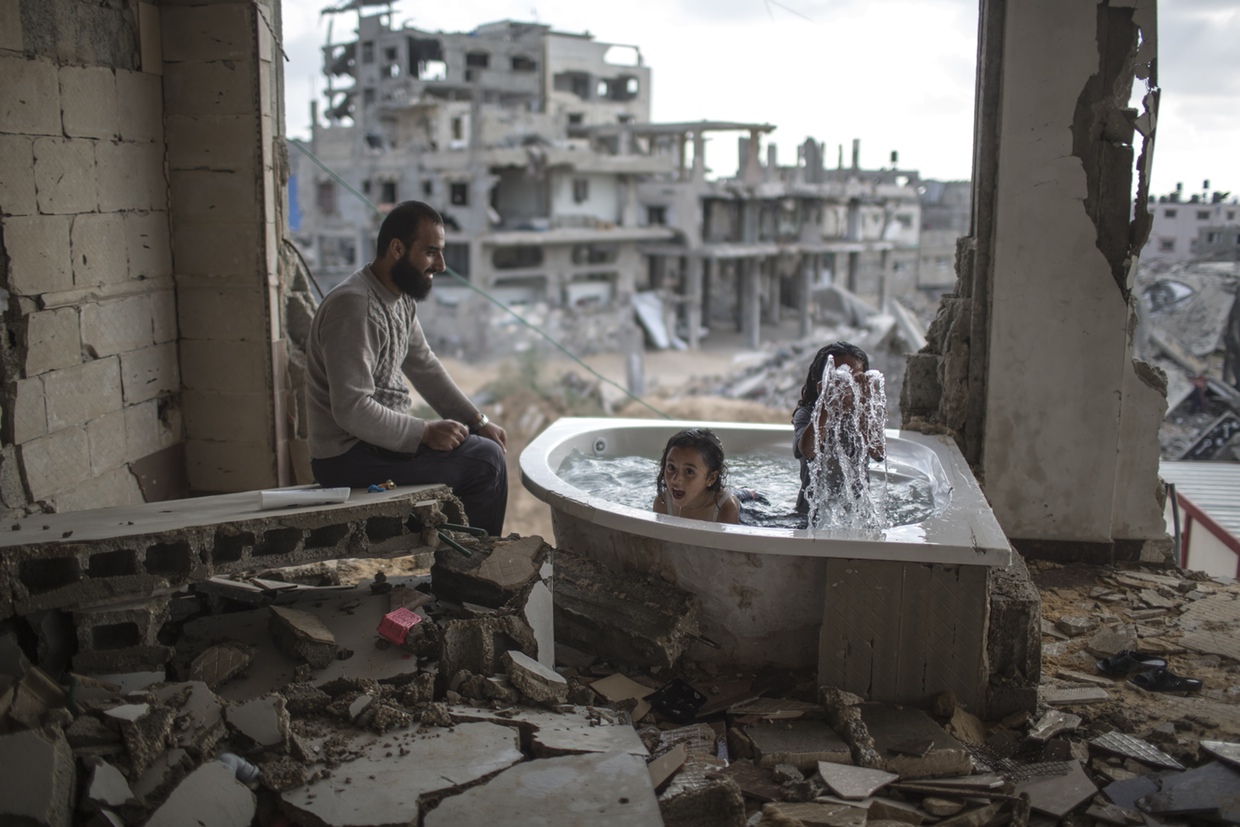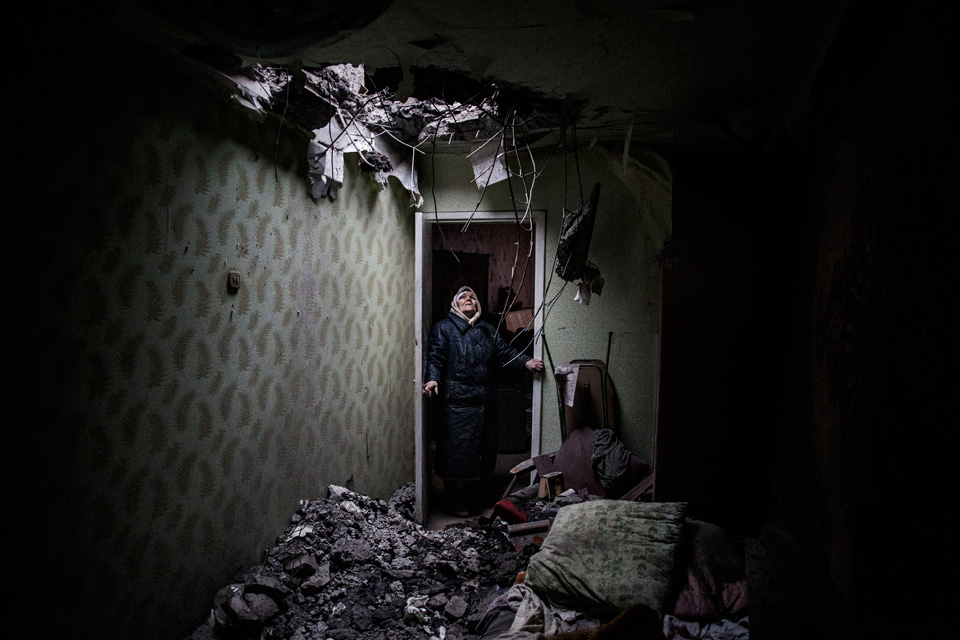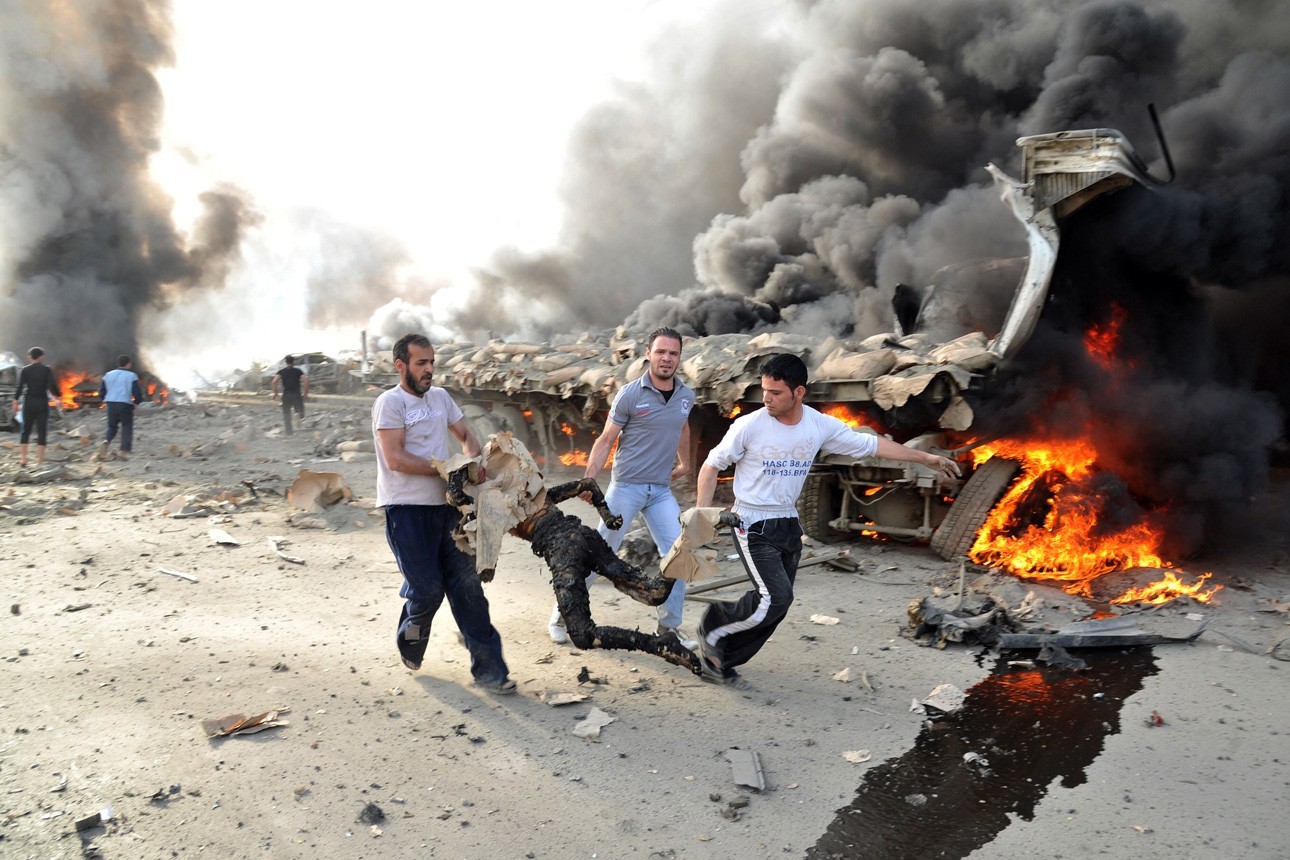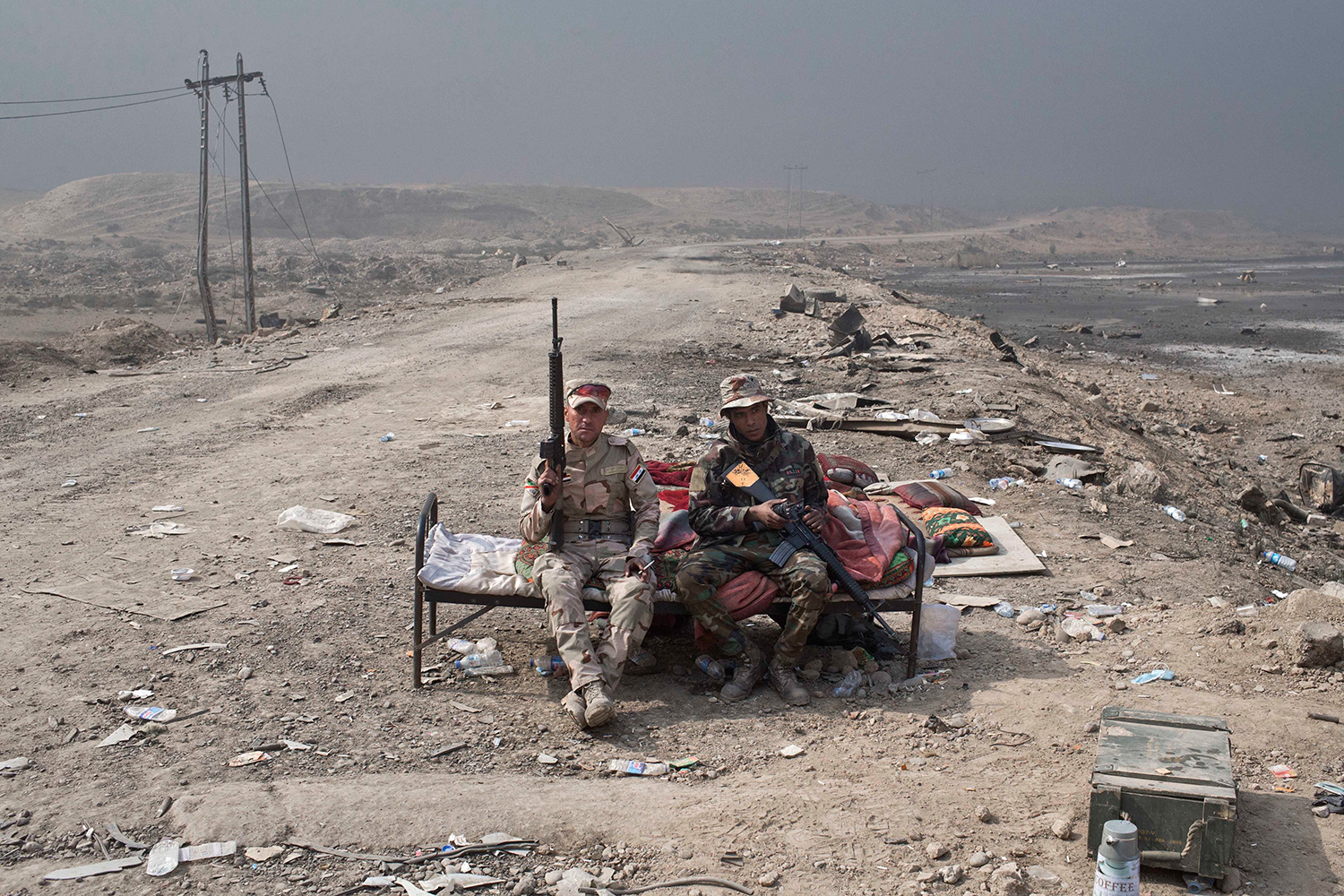
“I Don’t Really Believe in Words Like Revolution, Freedom or Liberty”:
Photographer on Covering the Battle of Mosul
On the 17th of October US-led coalition forces, Iraq and Kurdistan (Peshmerga) army started a military operation ‘We Are Coming, Nineveh’, aimed to liberate the city of Mosul taken by the Islamic state in 2014. The Battle of Mosul is the biggest military operation in the region since the US military forces invaded Iraq in 2003.
A near two-million population of Mosul became a life shield for the ISIS fighters. Those who were lucky to escape are to face a humanitarian crisis in the overflowing camps, as more than 48,000 people have fled the city since the operation started UN officials report. News about mass graves and revenge killings in the occupied territories are constantly emerging. The day after the operation started Serbian AP photographer Marko Drobnjakovic came to cover the news.
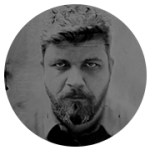
Serbian photographer works on assignment for Associated Press. Previously covered the US military operations in Iraq in 2006-2009, ISIS takeover of the territories in 2014, Balkan refugee crisis, Ukrainian war, a revolution in Kyiv and others.
Where are you now?
I’m in Erbil today and I have a day off. I’m in Iraq since the 18th of October and for the past days, I was everywhere around Mosul with the Iraqi forces. Now the AP called us back because of the US elections, as the interest in the story goes down there is no point in risking it.
You were assigned by the AP in Iraq before and covered the US military presence in the country in 2006-2009, and you have been in the same cities.
Yes, in those years I had a lot of assignments here in Iraq. I was in Mosul before, in 2009 with the unit of the US army. In 2014, I was in Erbil with an assignment for APTV when ISIS came. And now two years later I’m back again. I know this region and I’ve been covering it for a number of years and that’s why the AP called me.
All three assignments you got in the crucial times for this country and the difference on the ground must be vast.
Iraq has been facing dire problems for decades. And apart from the American occupation, or if being politically correct – the US mandate in Iraq, the only thing that differs is that now there is no US military on the ground. But the situation is very complicated and the suffering of the ordinary people has not stopped at all. You still have frequent bombs in Baghdad and you still have fighting in northern Iraq.
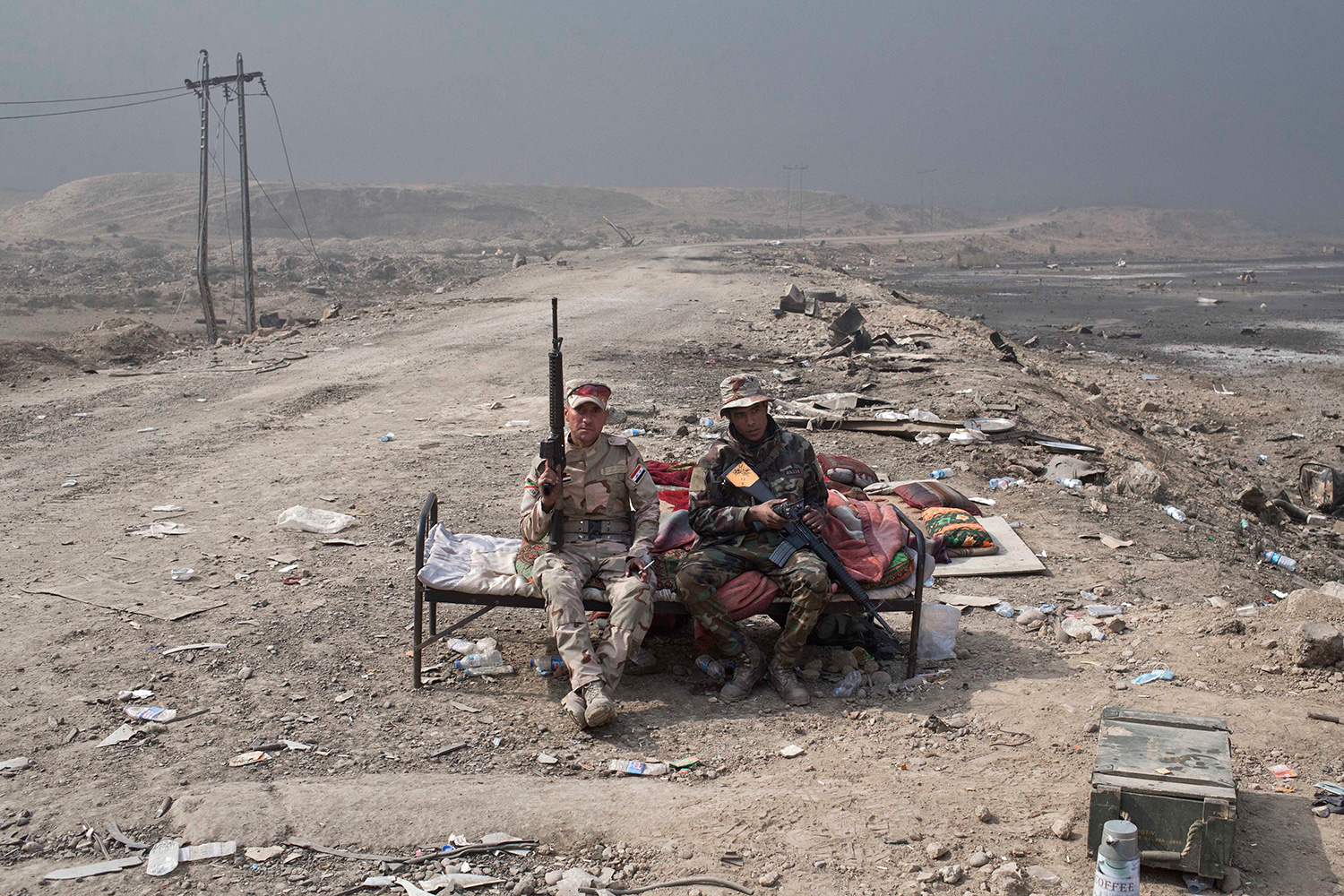
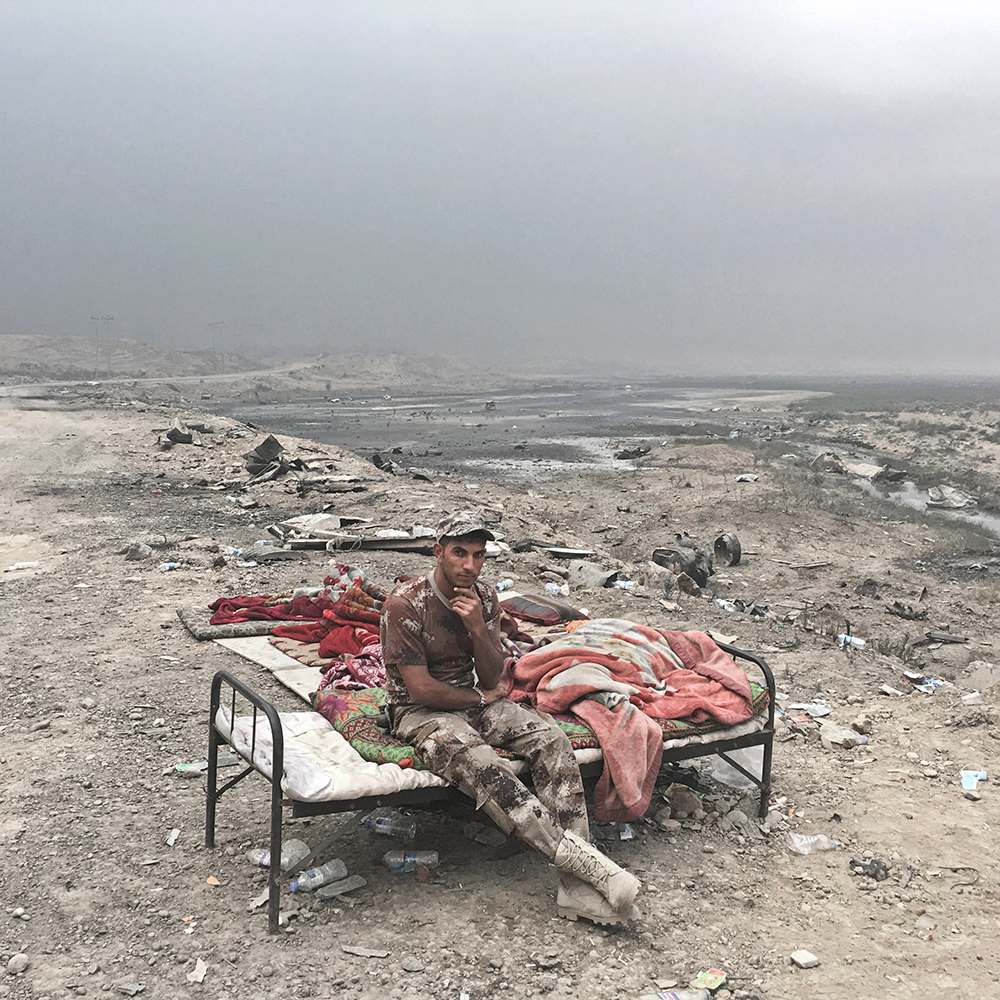
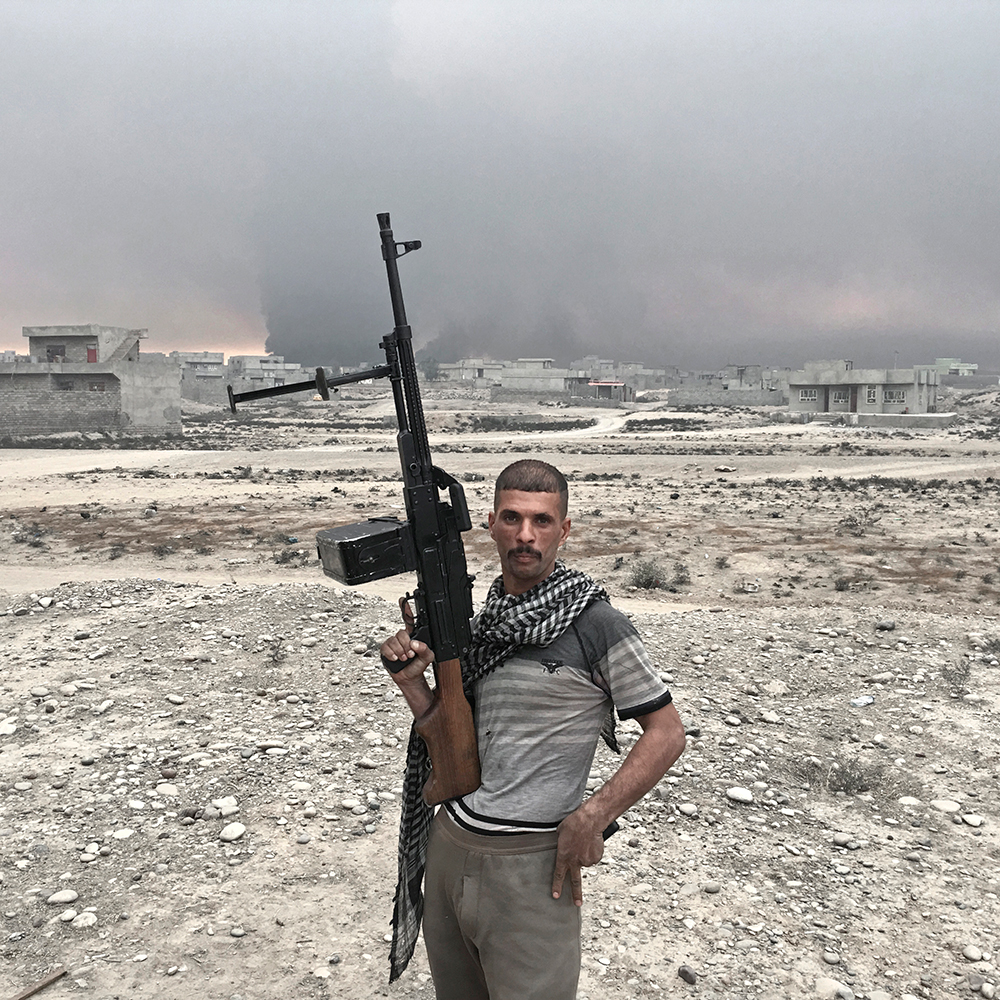


Back to your first assignment in the Iraq: you made many images capturing the actions of the US militaries and these images are, frankly speaking, not showing them from the best angle. It seems you don’t like them.
Well, yes! I come from ex-Yugoslavia and it shaped my view on the world. I’m very skeptical and I don’t really believe in the words like revolution, freedom or liberty. I’ve seen revolutions and felt them on my own before trying to photograph them. Let’s be honest, we are talking about the foreign forces invading the unknown territory, unfamiliar with the traditions and the lifestyle of the local population and acting with a very little of respect.
Now the US militaries are not there, in this operation, they are backing the Iraqi army from the sky and it’s the Iraqi soldiers searching homes for the jihadists. Same scene, only the characters differ.
I’ve probably searched thousands of houses all around Iraq with the various armed people. This is a very delicate issue. Militaries don’t actually knock on the door and say “hi, we are the Iraqi army, may we enter”. They just break in and look for any suspicious stuff or people. When you enter a house and make everybody scared and on top of it all you don’t address their fear and don’t try to explain anything but instead you insult them and ask silly questions like “why you have your pants short” or “why you have your beard”, how will civilians greet you? I’m not saying that all Iraqi militaries are behaving like this but some units are and I’ve seen it myself.
Two years ago the Iraqi army left the civilians and abandoned the city of Mosul and the neighboring territories. How do locals generally greet Iraqi forces now?
I think it is very hard for civilians to trust them. And the hardest part of the ISIS occupation is that it was the civilians who suffered, not an army. I’ve entered houses in which people were happy to see Iraqi militaries but also scared because they didn’t know what’s going to go on with this. But I’ve seen people kissing them, asking for cigarettes.
It is very mixed, as in any war. This is not just the ISIS is bad and the Iraqi army is good and the US militaries are winning “hearts and minds”. Some of the locals didn’t like to be under ISIS but the fact is that some of them did because at first ISIS was providing basic security and social guidelines, accepted by many locals in these parts of Iraq.
While the ISIS leader Abu Bakr al-Baghdadi calls every fighter to stay to the end and hold the city, what are the moods of the Iraqi militaries, as you’ve seen it?
I’m not impressed by the Iraqi army but I’ve seen a fair share of patriotism and a desire to be helpful trying to spare civilians from harm.
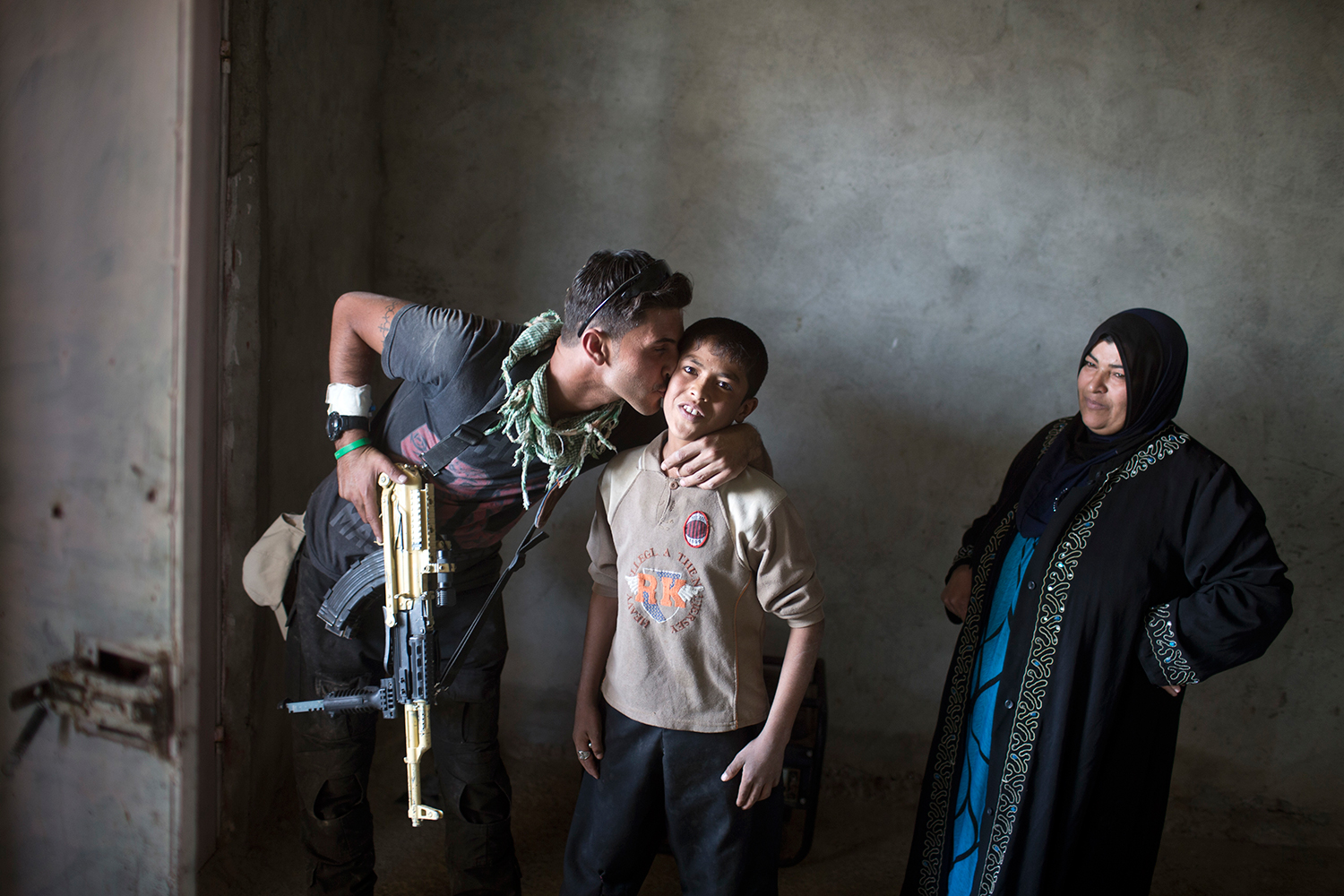
About the liberation war: in the US media the Mosul operation is called a liberation war. From your point of view does it really look like this?
The other day we heard a commander complaining he doesn’t have enough of the support from the coalition, especially from the US army, and he thinks it’s on purpose, that the coalition doesn’t want Iraq to be too successful. Well, you know how American foreign policy works: very often they tend to contain problems rather than solve them. Here in the Iraq, there is a view that this operation aims to liberate Mosul but only to a certain extent.
This war is not just about liberating the city from bad ISIS guys. You in Ukraine had your share of revolutions and a continuing war and you perfectly know that wars are not black and white, they’re mostly gray. And in this grayness, a lot of people die. Some days ago we were in a field hospital and we saw a woman who had lost six members of her family in one car-bomb attack and only her son and her daughter survived. I’m not sure if liberation means anything to her.
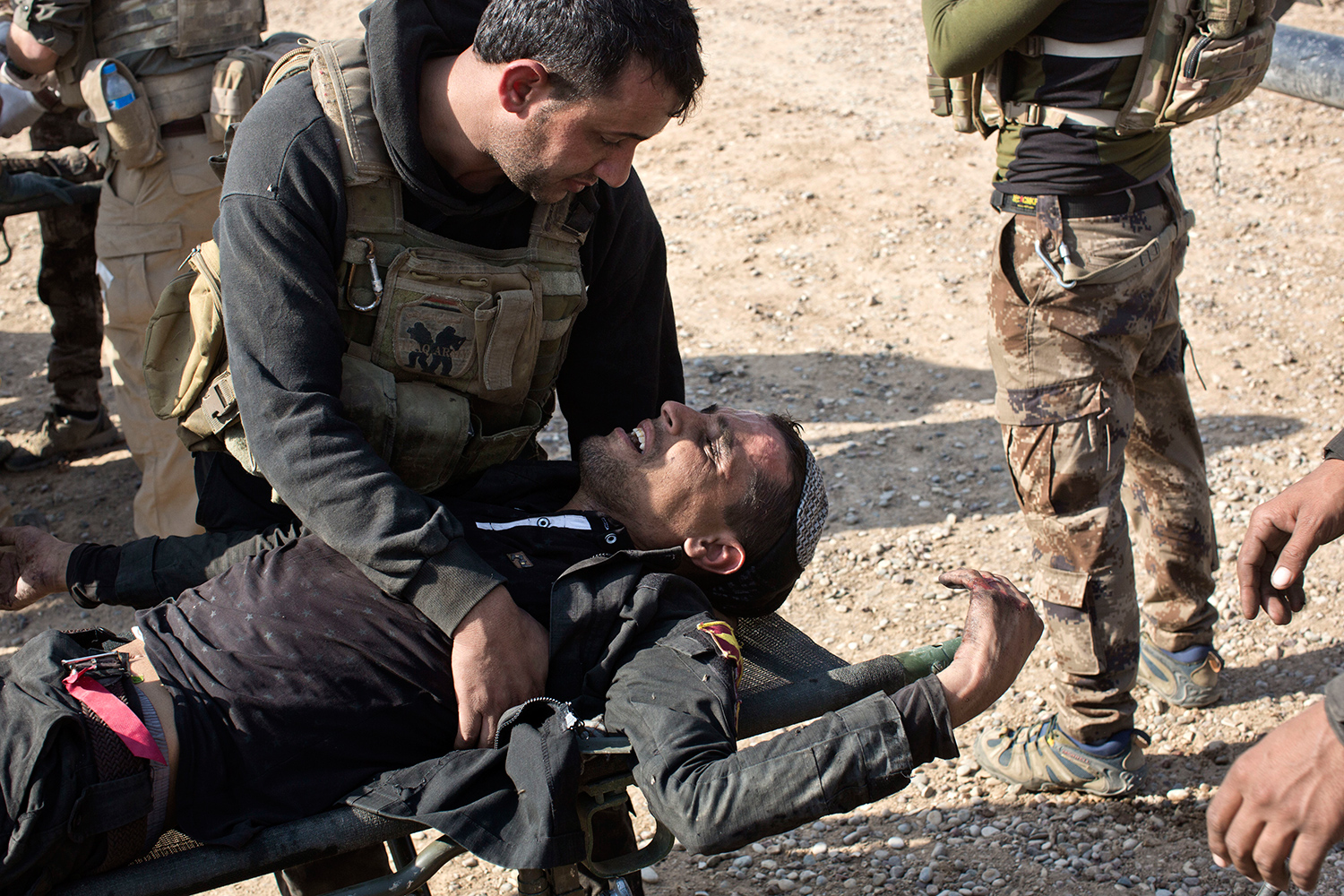
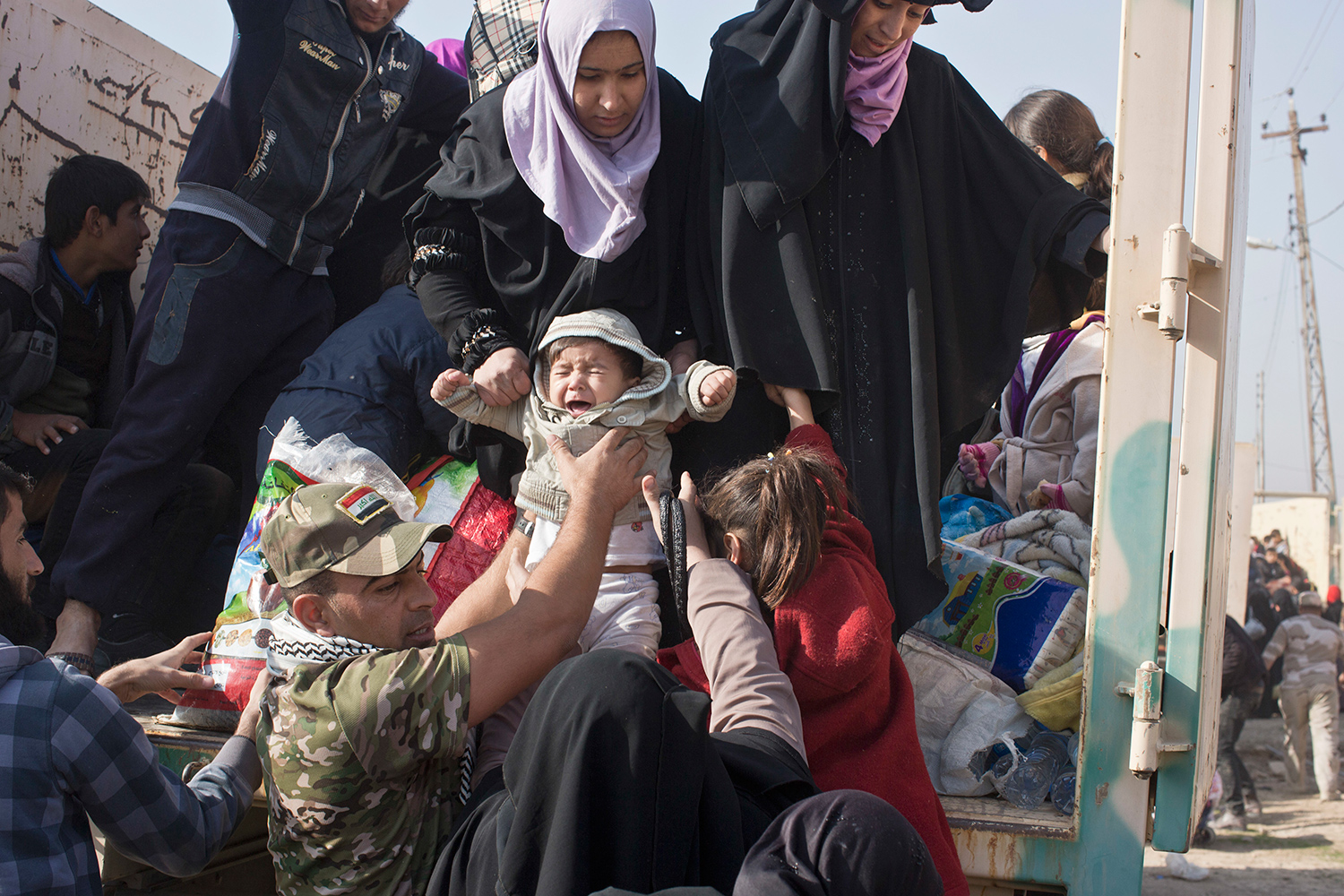
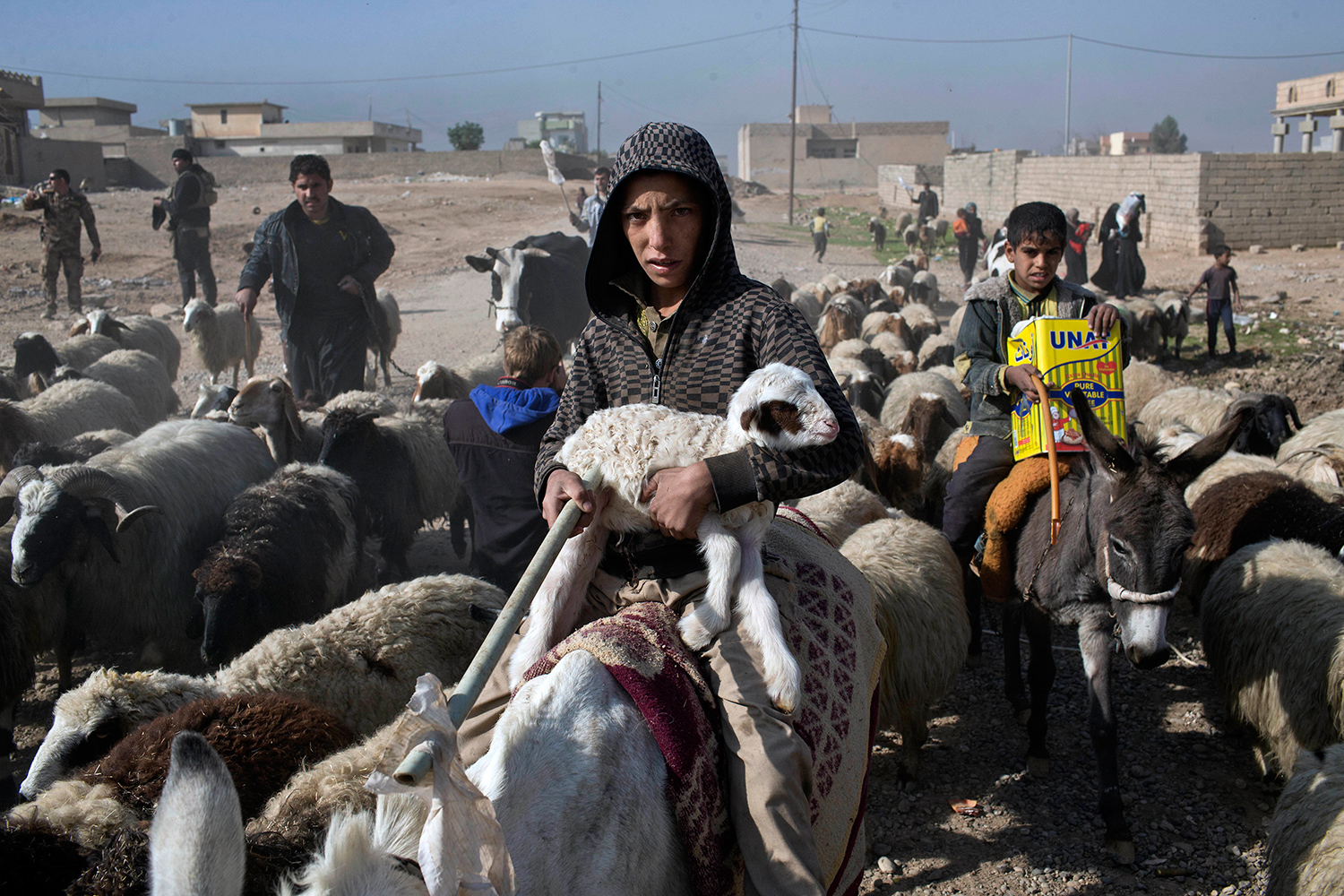
I think it is very foreseeable that ISIS will lose territory here. After getting rid of the Islamic state myriad of problems will appear with Mosul that has Sunni majority while the government in Baghdad is majority Shia. And if the Iraqi politics and army and the international community don’t pay attention to the needs of the people and continue to discriminate towards Sunni in two years they will be liberating Mosul again and I will be probably on the same front line taking the same pictures.
Is anybody missing Saddam?
Yes, I heard some of the Iraqi militaries saying “I was serving under Saddam, God bless his soul.” When you hear suddenly something like that initial reaction is to laugh, though it’s a little bit tragically. “Well, you can laugh if you want but a lot of people in northern Iraq will tell you the same – “God bless Saddam.” And I cannot judge these people and can even understand them to some extent.
Are people from Mosul aware they are in the middle of the map now? At least that was so before we learned US-election results.
As civilians in the besieged cities are severely restricted from getting any information from the world media I don’t think they are aware of being a matter of great interest around the world. Surely they don’t read news telling that the fight for Mosul is a turning point in the war against ISIS. I think many people are really lost in this fog of war. Many people inside Mosul and especially in the rural parts of the neighborhood and in the small villages around are not aware of the operation and who’s going to come.
Thousands of people from Mosul and its neighborhoods are fleeing to the UN camps. Have you had any opportunity to visit the camps or talk to the people?
I went to several camps around Mosul and Erbil and emotionally this is the hardest part because you see how hard life inside camps is. And even though people have basic provisions and security it is really sad simply to see people living in tents.
In the camps I always try to go to a local barber, in any camp, you can find a person who cuts everybody’s hair. The barber shop is usually a place where people come no matter if they need a haircut or a chat, just to see who’s in and pass their time. So when you go there you always meet people who are talking about the daily stuff, watching TV, commenting the news. The barber is a man with a huge smile on his face and he lets us in the place and helps us around. And there are always kids who always want to get in the frame and finally you forget about doing your job and you’re just trying to be the entertainment.
This is the Middle East and people here have some wisdom and I think many of them have come to terms with their dire conditions and the refugees know they won’t leave the camps soon. And they are trying to make their lives in the refugee camps just tolerable.
I’ve learned that the prevailing thing in the refugee camp is optimism. Even though some refugee camps are so dire what I found about the refugees and what gives hope about the entire human population is that there is always optimism.
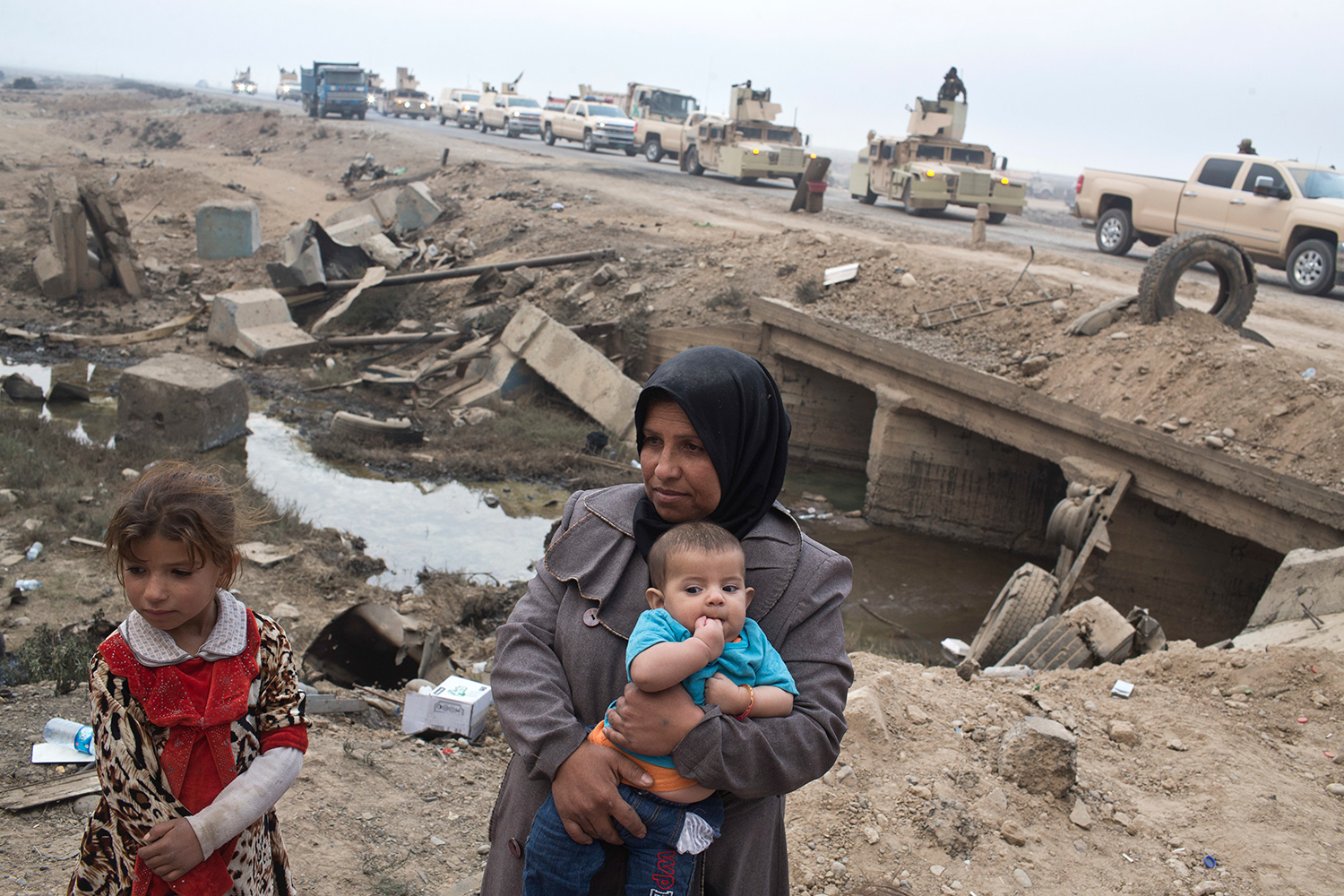
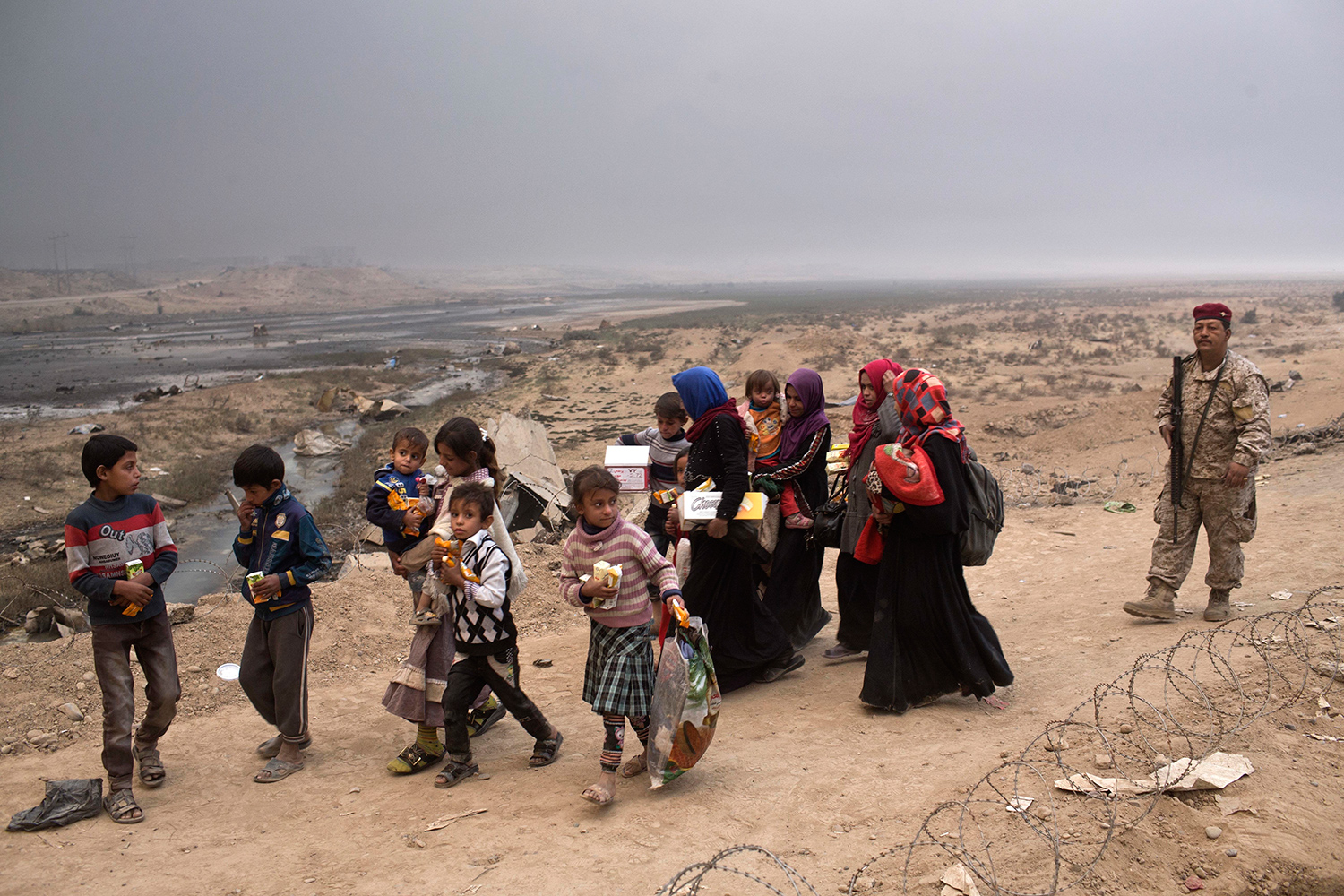
This time in Iraq have you already took images you really like and remember?
There are a lot of pictures that stay with me but it doesn’t mean I like them. I can only like my pictures for about 2 minutes before I see a myriad of mistakes. The only picture I have in mind right now is a picture of a family sitting at the grave of their recently killed relative and the fires of the oil wells are burning behind their backs in Kayara. There was nothing to be done with the frame and I didn’t have to do much to complete it. I was there for only a couple of minutes with those people but that stayed with me.
What are the risks and what can you do to avoid them?
If you want to go to the frontline you have to be ready to share the destiny of a soldier. I find it silly to talk about my own safety when there are millions of people around here living under the continuous threat. But they are not giving interviews. I better have a base human solidarity.
What’s your attitude to the graphic content warning?
It’s the 21st century and I don’t think my job is to shock anybody. If you want to get shocked – just turn on your Facebook.

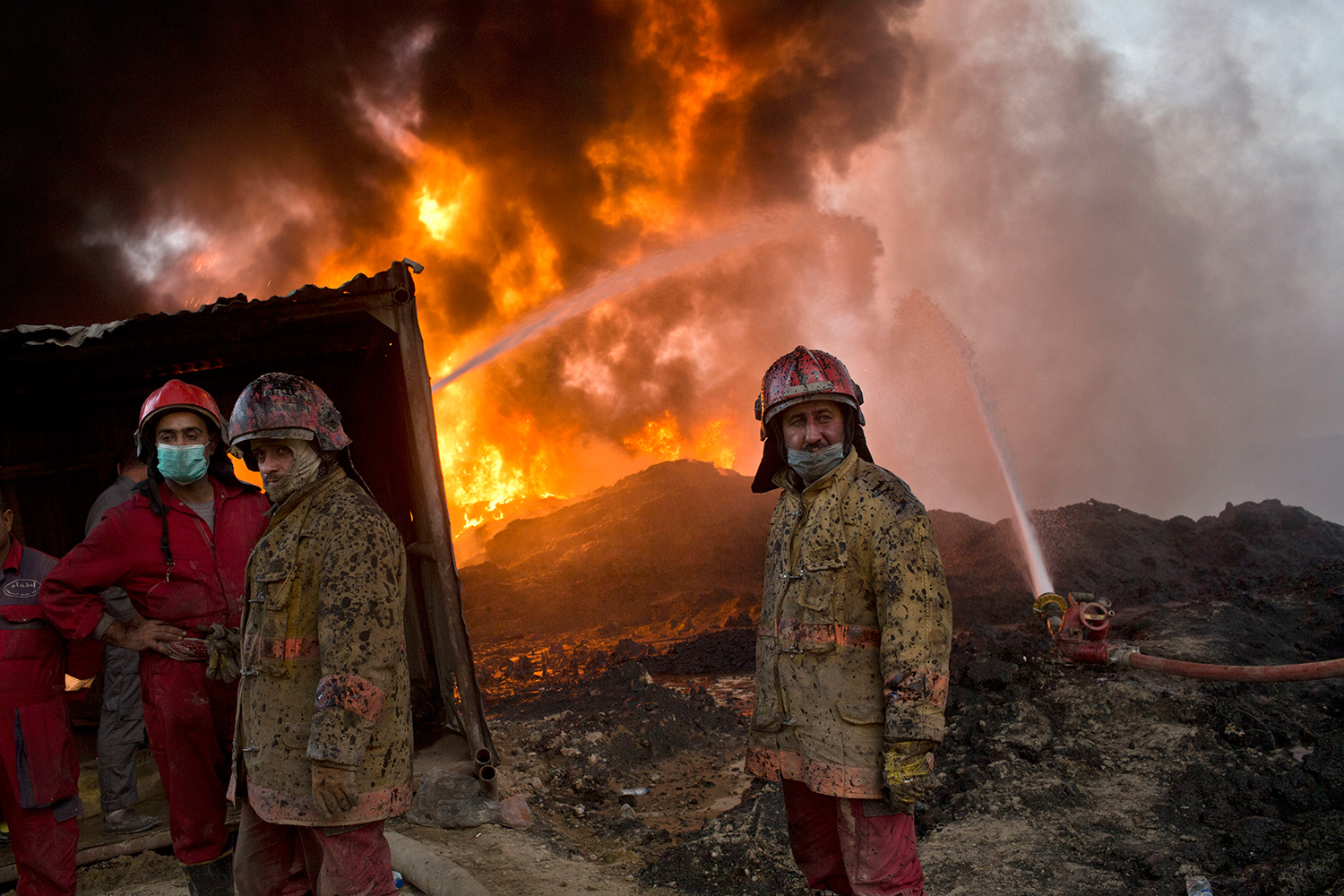
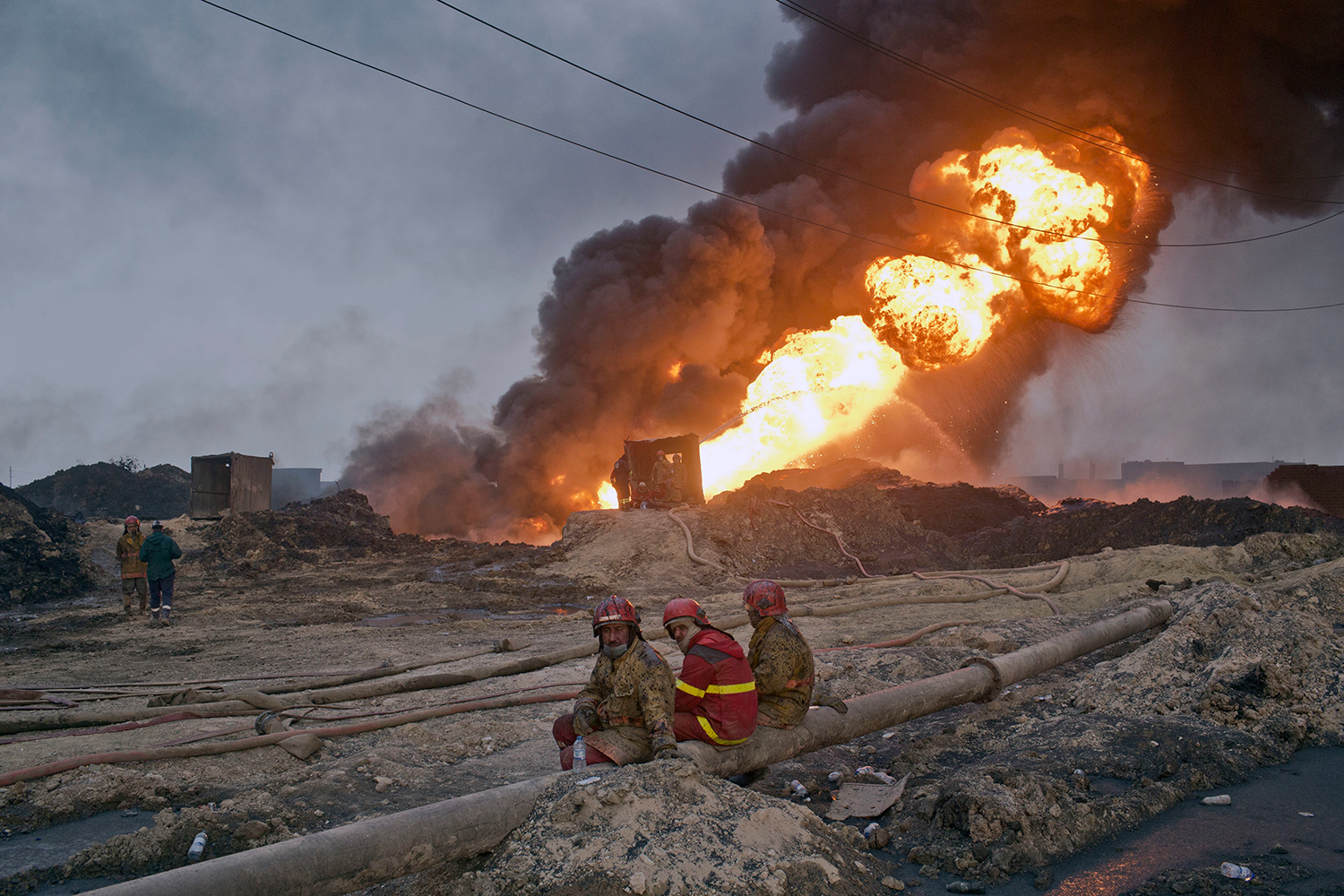
Photo: Marko Drobnjakovic / AP Photo / East News
New and best
